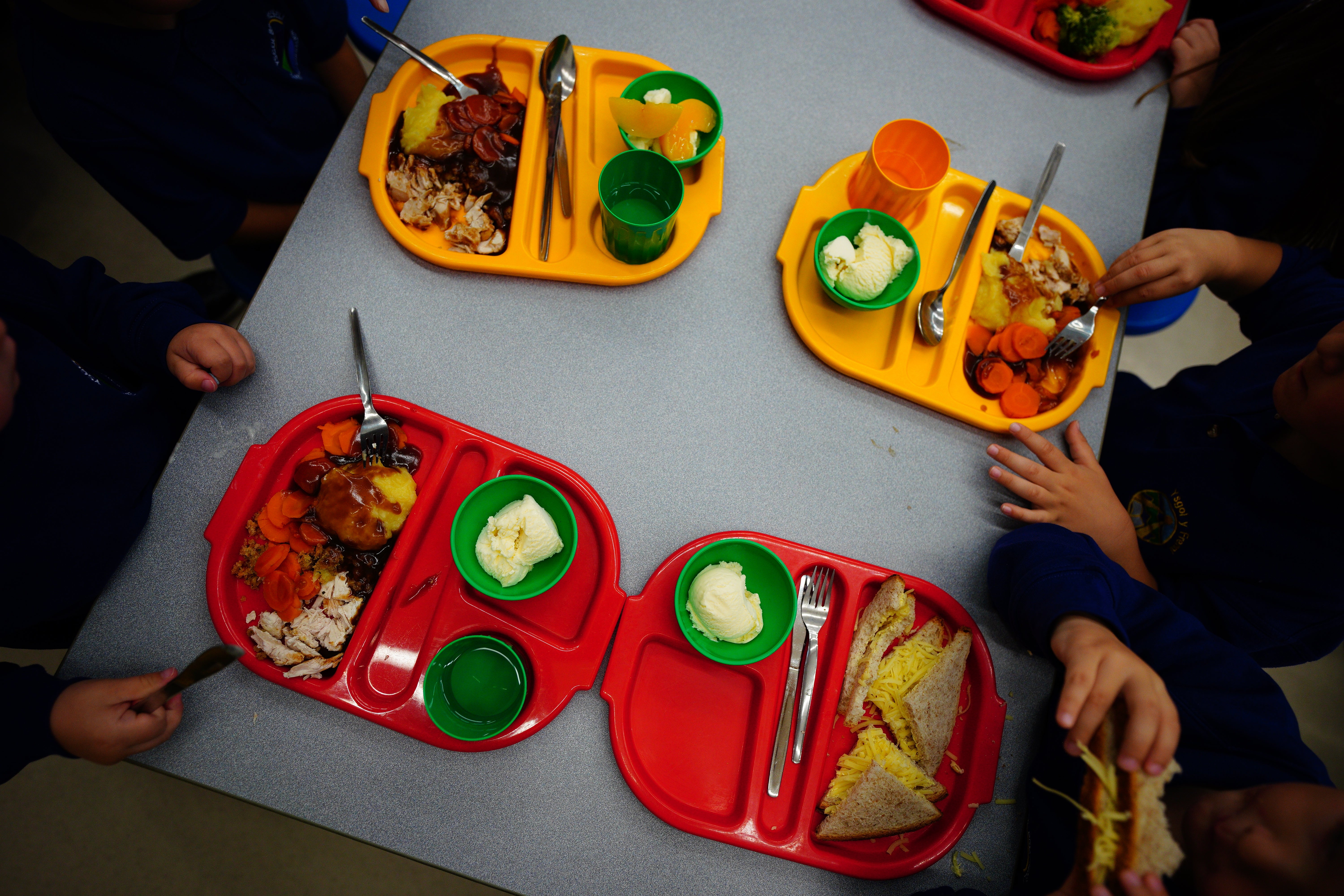Nearly three in 10 teachers ‘bring in food for hungry pupils’
Teachers in the North West of England reported the biggest increase in personally providing food to hungry pupils
Your support helps us to tell the story
From reproductive rights to climate change to Big Tech, The Independent is on the ground when the story is developing. Whether it's investigating the financials of Elon Musk's pro-Trump PAC or producing our latest documentary, 'The A Word', which shines a light on the American women fighting for reproductive rights, we know how important it is to parse out the facts from the messaging.
At such a critical moment in US history, we need reporters on the ground. Your donation allows us to keep sending journalists to speak to both sides of the story.
The Independent is trusted by Americans across the entire political spectrum. And unlike many other quality news outlets, we choose not to lock Americans out of our reporting and analysis with paywalls. We believe quality journalism should be available to everyone, paid for by those who can afford it.
Your support makes all the difference.Nearly three in 10 teachers in England personally provided food to pupils in the summer term out of concern for their welfare, a survey has suggested.
More teachers have been forced to bring in food for children in their school than last year - especially in the most deprived areas of England, according to the poll conducted for charity FareShare.
The survey, carried out by the Teacher Tapp app, suggests that 28 per cent of teachers in England personally provided food to at least one pupil in the summer term. This is up from 26 per cent of teachers last summer.
The data comes after a new report from children’s charity NSPCC revealed that front line workers feel powerless to act in some cases of child neglect.
More than half of the professionals across healthcare, the police, children’s social care and education who were surveyed for the new research said that they had seen an increase in child neglect cases during their professional life.
Ninety per cent said the rising cost of living and poverty rates were a driving factor, while 76 per cent said that a reduction in community support to parents was also contributing.
More than a third (35 per cent) of teachers polled on Teacher Tapp said they did not personally give food to pupils last term because their school already provides it for children in need - which is the same figure as in 2023.
FareShare, a charity which tackles hunger and food waste, is calling on the government to address the “growing crisis” and ensure that children get the nourishment they need to thrive in school.

The survey, of around 10,000 teachers in England on August 1, found 36 per cent of teachers working in the more deprived areas reported handing out food to pupils compared with 23 per cent in the more affluent areas.
The North West saw the biggest increase in teachers reporting that they brought in food for pupils compared to last year.
The poll found 34 per cent of teachers in the region said they had personally provided children in their school with food in the summer term, up on 29 per cent last year.
George Wright, chief executive at FareShare, said: “Our teachers should be focused on educating, not filling the gaps in food provision.
“We need the new government to collaborate with the food redistribution sector to ensure more nutritious food reaches people in need.”

Daniel Kebede, general secretary of the National Education Union, called on the government to provide free school meals for all. He said it was a “tragedy” that there are so many children “sat in classrooms while enduring gnawing hunger”.
Pepe Di’Iasio, general secretary of the Association of School and College Leaders, said the findings reflect the fact that the number of children living in destitution has risen in recent years.
He said: “Teachers and schools frequently step in to the gap to help them with food and clothing. The predicament of these young people is a national scandal and the government’s child poverty taskforce needs to come up with practical solutions as quickly as possible.
A government spokesperson said: “We understand the pressures households are facing, and that is why we are taking action to deliver our mission of breaking down barriers to opportunity and improving the life chances of every child.
“We will develop an ambitious strategy to reduce child poverty, led by a taskforce co-chaired by the Education Secretary and Work and Pensions Secretary, and looking at how to increase household income, bring down essential costs, and tackle the negative experience of living in poverty.
“This comes alongside plans to roll out free breakfast clubs in every primary school so children start the day ready to learn, and turning the minimum wage into a real living wage to make work pay.”

Join our commenting forum
Join thought-provoking conversations, follow other Independent readers and see their replies
Comments